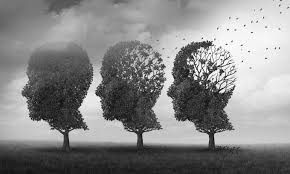#stress anxiety mentalhealth depression health stressrelief wellness love selfcare mindfulness covid healing stressmanagement motivation ment
Text
Rester Zen
Un an de Covid dans les pattes, un an d’inquiétude, de confinement, de reprise épidémique, de chiffres de mortalité, de proches qui tombent malade, de reconfinement, de variant anglais, brésilien. Un an d’éloignement de nos proches, de nos amis, un an loin des concerts, des cinémas, des lieux de détente. Un an et ce n’est pas terminé et on ne sait même pas bien quand ça va s’arrêter. Autant de facteurs de stress constant qui conduisent à des formes de stress chronique et qui peuvent aboutir à tout un tas de troubles, dont la dépression

Restilen est un moyen efficace de lutter contre le stress. L'utilisation régulière du produit permet d'augmenter la résistance au stress, de réduire ses symptômes, ceux de la fatigue et de la lassitude. Le produit est basé uniquement sur des ingrédients naturels qui agissent directement sur la source du problème.
Restilen est destiné aux hommes et aux femmes qui souffrent déjà de stress, d'anxiété ou de nervosité et qui souhaitent soulager leurs symptômes. Les effets du produit sont visibles dès le premier jour d'utilisation.
En savoir +: https://nplink.net/9rb7o5dj
Consultez notre site: https://enforme.spread.name/
#zen#relax#musculation#stress anxiety mentalhealth depression health stressrelief wellness love selfcare mindfulness covid healing stressmanagement motivation ment#recovery fitness lifestyle happy happiness healthy coronavirus help pain sleep peace bipolar cbd stressfree mentalillness angst instagram in#stressrelief#stressfree#stressed#stressreliever#stressedout#stressmanagement#stressless#stressbuster#stressful#stressaway#stresseating#stressfreezone#stressrelease#stressrelieving#stressreduction#stressout#stressfreelife#stressing#stressball#stressfulday
3 notes
·
View notes
Link
Sometimes all we need to release stress from our body is a few deep breaths. Breathe in deeply through your nose, and take in as much air as you comfortably can and hold for a while. Then release it, and really focus on emptying your lungs. Repeat this breathing exercise for a few breaths and release the tension .
0 notes
Text
No Stress
Le stress a des répercussions sur la santé (maladie cardiaque…) et des conséquences psychologiques (dépression…), sociales, familiales et professionnelles. L'état de stress et l'anxiété sont généralement liés. Le stress peut amener une anxiété et les personnes anxieuses risquent de développer un stress.

#stress anxiety mentalhealth depression health stressrelief wellness love selfcare mindfulness covid healing stressmanagement motivation ment#stress#anxiété
0 notes
Text
Stress shrinks the brain
In a world where everything is accelerating and where daily stress is more and more intense, health indicators quickly turn into the red if we do not learn to manage stress, whether by sleeping well, by practicing relaxation techniques or regular physical activity. So much so that we wonder what the real impact of stress is on our brain. For the first time, Sudha Seshadri's team from the University of Texas at San Antonio evaluated it in healthy humans: stress reduces brain size and impairs cognitive functions, including memorization. .

The first effect of stress on our body is the activation of a nervous and hormonal axis, called the hypothalamic-pituitary axis. This results in the secretion of the main stress hormone, cortisol; its action in combination with other molecules allows the body to react and adapt - at best. In laboratory animals and in small groups of people, often elderly or suffering from pathologies, various scientific studies have shown that high concentrations of blood cortisol are associated with changes in certain structures of the brain and sometimes with cognitive alterations. However, the results are often contradictory, and no study has looked at large numbers of young and healthy people.

This is what Seshadri and his colleagues did thanks to participants and data from the Framingham Heart Study cohort: more than 2,200 people aged on average 48.5 years old, not suffering from any neurological or psychiatric disorder, underwent measurements of their fasting blood cortisol level in the morning, before having a brain MRI as well as cognitive tests (among other examinations). The results revealed that the subjects' average blood cortisol concentration was 12.92 micrograms per deciliter, with one third of the participants having a low level (less than 10.8), one third having a high level (greater than 15.8). ), the last third being between the two. But above all, the most stressed people have a smaller brain than that of the other two groups, with in particular less gray matter (formed by all the cell bodies of neurons) in the frontal and parietal cortices (involved in particular in the functions such as planning, inhibition and spatial orientation). People with elevated cortisol levels also have a greater alteration of white matter, made up of extensions of neurons and involved in the transmission of information. And these structural changes are accompanied by cognitive deficits: the most stressed people do less well on memorization and attention tasks. The effects are greater in women than in men, perhaps because they are generally more "sensitive" to the glucocorticoid hormones, including cortisol. Stress therefore already affects the brains of middle-aged, healthy people, that is to say long before the first signs of brain aging and possible pathologies.
Learn more: https://nplink.net/0tu36gee
#stress anxiety mentalhealth depression health stressrelief wellness love selfcare mindfulness covid healing stressmanagement motivation ment#recovery fitness lifestyle happy happiness healthy coronavirus help pain sleep peace bipolar cbd stressfree mentalillness angst instagram in
0 notes